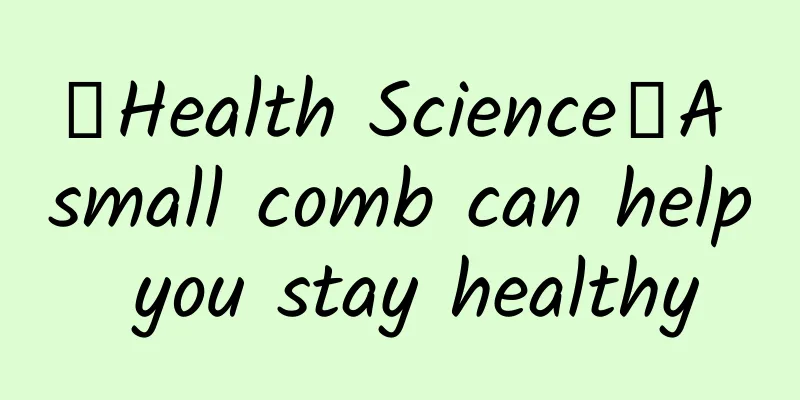Should milk be drunk on an empty stomach, in the morning, hot, or alone? Are there really so many taboos?

|
As soon as the summer vacation started, the children started to eat breakfast at home. Milk was often included in breakfast, so those "eternal" questions about milk lingered in my ears again. My mother would ask me the following questions every few days in the morning: Can you really drink milk on an empty stomach? Is it better to drink milk in the morning than in the evening? Should milk be heated before drinking? Is it true that milk cannot be consumed together with soy milk, fruit juice, or xx? … There are so many questions like this. And it seems that people answer this question today and forget that question tomorrow. I wonder if you have similar questions, so I will just use an article to explain them clearly today. Image source: Tuchong Creative Can you drink milk on an empty stomach? In fact, the mystery of whether milk can be consumed on an empty stomach involves two aspects. First, drinking milk on an empty stomach may cause abdominal pain, bloating, and diarrhea. Many people find that when they drink milk on an empty stomach, they often experience bloating, abdominal pain or diarrhea, so they believe that this is a problem caused by drinking milk on an empty stomach. In fact, this view is only partially correct. Since Chinese people are generally lactose intolerant, many people cannot completely digest the lactose in milk. A large amount of undigested lactose accumulates in the gastrointestinal tract, which may cause abdominal distension, abdominal pain, and diarrhea. The high lactose concentration when drinking milk on an empty stomach will aggravate this phenomenon. Second, drinking milk on an empty stomach will not cause waste of milk protein. Many people have heard that when the sugar supply is insufficient, the human body will use protein for energy. Therefore, they worry that when drinking milk on an empty stomach, without the sugar blessing brought by staple food, the protein in the milk will be used for energy instead of playing important functions such as building human tissues and improving immunity. In fact, the lactose in milk can be used as sugar to provide energy for the human body, so there is no need to worry about wasting protein when drinking milk on an empty stomach. The conclusion is: if you are not lactose intolerant, it is completely fine to drink milk on an empty stomach. If you are lactose intolerant, it is recommended to eat some staple food when drinking milk to reduce bloating and diarrhea. Alternatively, you can directly choose Shuhua milk, and you don’t have to worry about drinking on an empty stomach causing diarrhea and bloating! When is the best time to drink milk? I remember a friend said that milk in the morning is gold, while milk in the evening is cheap as water. He believed that drinking milk at night would damage the stomach. In fact, if your gastrointestinal tract is healthy and you don't feel uncomfortable after drinking milk, you can drink milk at any time. As long as you don't drink too much and cause bloating and insomnia, drinking a cup of hot milk at night to fill your stomach is much better than eating a high-fat and high-salt midnight snack. As for some friends who expect to fall asleep by drinking a glass of milk, the effect may not be very stable. Although milk is rich in tryptophan, which can help synthesize melatonin and thus promote sleep, the relevant research evidence is not sufficient. Moreover, in addition to diet, sleep quality is also related to factors such as light, temperature and humidity, and emotional state before falling asleep. If you want to have a good sleep, you also need comprehensive adjustment. Can milk only be consumed alone? In my country, the concept of food incompatibility is deeply rooted in people's minds. Among all the rumors about food incompatibility, milk is one of the most common food incompatibility rumors. For example, some people say that milk and soy milk cannot be drunk together, some say that milk and fruit juice cannot be drunk together, some say that milk and mango cannot be eaten together, and some say that milk and peanuts cannot be eaten together... Let me first state the conclusion: drinking/eating milk with any food will not cause poisoning due to "food incompatibility". On the contrary, drinking/eating some of the foods listed above with milk will improve the flavor and promote nutrient absorption. For example, drinking milk and soy milk together will not affect the absorption and utilization of the protein in milk. On the contrary, due to the complementary effects between the animal protein and plant protein in milk and soy milk, it can also improve the overall utilization rate of protein. My favorite breakfast drink in the past two years is a half-mix of milk and soy milk. It has both the aroma of beans and the richness of milk, which is quite wonderful. As for some friends who are worried that the trypsin inhibitor in soy milk will affect protein digestion, there is no need to worry. After all, when the soy milk is boiled, the trypsin inhibitor is also completely destroyed by the high temperature. For example, eating milk and mango together can enhance the flavor, making those who don't like the smell of milk fall in love with drinking milk. Mango is also rich in protease, which may break down the protein in milk to a certain extent, but this will only make it more conducive to our digestion and absorption without causing any harm. As for mixing milk and juice, although it does not affect the nutritional value of milk, some juices are rich in organic acids, which will denature the protein in the milk and produce flocculent sediments (similar to the effect of egg white coagulation after cooking eggs), which may lead to a decline in appearance and taste. In fact, as long as the two are not left for too long after mixing, generally not much sediment will be produced. What are the real taboos of drinking milk? Since when to drink milk and what to drink it with are not issues to worry about, then what are the real taboos of drinking milk? First, not drinking enough or drinking too much. Milk can be said to be the most important food source of calcium in our daily life. The "Dietary Guidelines for Chinese Residents" recommends that adults should drink 300-500 grams of milk per day. However, the average daily milk consumption of our people is less than half of the recommended amount in the dietary guidelines. Therefore, it is not an exaggeration to say that the biggest taboo of drinking milk is not drinking enough. It is recommended that you drink 1-2 bags of pure milk or yogurt every day. If you choose to drink yogurt, you should pay attention to choosing real yogurt with raw milk as the main ingredient, rather than yogurt drinks with lower milk content. At the same time, pay attention to choosing plain yogurt as much as possible to avoid consuming too much sugar. Drinking too much milk, such as drinking more than 800 ml a day, may affect the absorption and utilization of other minerals, especially iron. This is because the calcium and iron in milk have a competitive absorption relationship in the human body. Once too much calcium is consumed, it will competitively inhibit the absorption of iron. Milk itself is a food with a low iron content. In the long run, it may lay the hidden danger of iron deficiency anemia. Second, people with acne should be careful when drinking milk A young friend of mine found that his acne would get worse as soon as he drank milk. This is not groundless. Studies have found that milk contains free insulin-like growth factor, which can indeed cause excessive sebum secretion. In other words, it is natural for oily skin to get worse acne after drinking milk. However, studies have found that skim and low-fat milk are more closely related to the occurrence of acne. Since the fermentation process of yogurt destroys most of the free insulin-like growth factor, it will not cause acne to worsen without adding extra sugar. Friends who are worried that drinking milk will aggravate acne can choose sugar-free yogurt. Third, don’t drink freshly squeezed milk. Some people think that freshly squeezed cow's milk and goat's milk are the freshest and most nutritious, and they wish they could drink it directly from the cow. In fact, freshly squeezed milk poses a significant food safety risk. Since it has not been sterilized, freshly squeezed milk is likely to contain a variety of pathogens, such as E. coli, Salmonella, and Brucella. Therefore, you must avoid drinking freshly squeezed milk, and it is best to buy freshly sold pre-packaged milk. You see, even the simplest thing of drinking milk has so much knowledge when examined in detail. It can be seen that every meal is an important part of life. Taking diet seriously is taking life seriously. The article is produced by Science Popularization China-Starry Sky Project (Creation and Cultivation). Please indicate the source when reprinting. Author: Wang Lu, Chinese registered dietitian, Master of Public Health, Peking University Reviewer: Xue Qingxin, the first batch of nutrition instructors of the National Health Commission, China registered nutritionist |
<<: Can people with high uric acid and gout eat beans?
>>: Homemade food, it's not easy to love you
Recommend
Can I still have breast enhancement at the age of 30?
Breasts are something a woman can be proud of. Us...
Can I have a vaginal birth if the placenta is low?
The placenta is in a relatively low position, whi...
How long does it take to stop taking progesterone injections?
Progesterone is an important indicator of the phy...
What should I pay attention to when I just found out I'm pregnant?
What should I pay attention to after I just found...
How to Lighten Scars
No one wants to find scars on their face, because...
What should unmarried women do if they have cervical erosion?
According to a survey, there are more and more wo...
Is it normal not to get pregnant after six months of IUD removal?
IUD insertion is a long-term contraceptive method...
My period hasn't come for 3 days.
The phenomenon of delayed menstruation has happen...
What is the treatment for low estrogen and thin endometrium?
Nowadays, the pressure of survival is getting gre...
What items should women check for pregnancy
For expectant mothers during the pregnancy prepar...
Whitening around the female urethra
The urethra is an important part of a woman's...
[Bincheng City Creation in Progress] Food Companion | Consumer Tips on Abalone and Its Products
Abalone is soft and smooth, with a rich and delic...
What to do if a girl has anemia
Girls' bodies are inherently weaker, so every...
In the spring with catkins all over the sky, please be careful of allergies
It is April again, the spring has come. After the...
What is the nutritional value of juice? How to make juice nutritious and delicious?
Fruit juice is healthy, nutritious, and delicious,...









